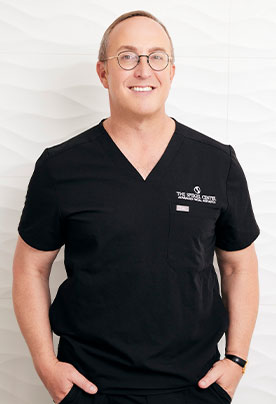
Time after time, research shows that plastic surgery can have a tremendous impact on the patient’s overall self-esteem. However, boosting self-esteem and actually treating depression are two very different things. In fact, one study by the American Society of Plastic Surgeons shows that many patients stop taking antidepressants after plastic surgery.
An Interesting Theory
Oftentimes, people who battle depression on a daily basis feel helpless – even hopeless. Plastic surgery is a proactive approach to self-improvement, which may empower some people suffering from depression. Sometimes, individuals who have prominent facial or body features may be subjected to bullying and criticism alongside their own self disdain, which often leads to depression. By proactively addressing these features with plastic surgery, individuals feel better about themselves, thus alleviating some of the sadness and hopelessness they feel.
The Study
A small study conducted by the American Society of Plastic Surgeons (ASPS) focused on a group of 362 patients scheduled for a variety of cosmetic surgery procedures. Prior to their surgeries, 61 patients (17%) were taking some sort of prescription antidepressant. Six months following their procedures, that number fell to 42 patients, a decrease of 31%. What’s more, an astonishing 98% of all of the patients reported a vast improvement in their overall self-esteem.
The Real Belief
Regardless of the small nature of the study and the lack of control questions, it only makes sense that, in many cases, plastic surgery can have a tremendous impact on a patients’ need to use antidepressants. Many people develop mental barriers related to their physical appearance, as this is simply human nature. Someone who feels young on the inside but shows his or her age on the outside often feels incredibly limited by his or her appearance, and a facelift can certainly alleviate that barrier and provide new freedom to boost self-esteem.
What this Means for the Future
Psychologists will likely never recommend or prescribe plastic surgery to treat depression, but studies like this one may actually have an effect on the procedures that an insurance company deems “necessary”. Cosmetic procedures are usually coined “elective” or “not medically necessary”, meaning patients must pay out of pocket. If more and more insurance providers (and physicians alike) come to understand that plastic surgery can alleviate depression and do away with the need to take antidepressants over the long-term, they may begin covering such surgeries under their insurance plans.
There is no denying that for some people, plastic surgery can provide such a massive boost to their overall self-esteem that depression seems to fall to the wayside. Before considering plastic surgery to help reduce the symptoms of depression, however, patients should seek therapy in order to get to the root of the problem itself.





